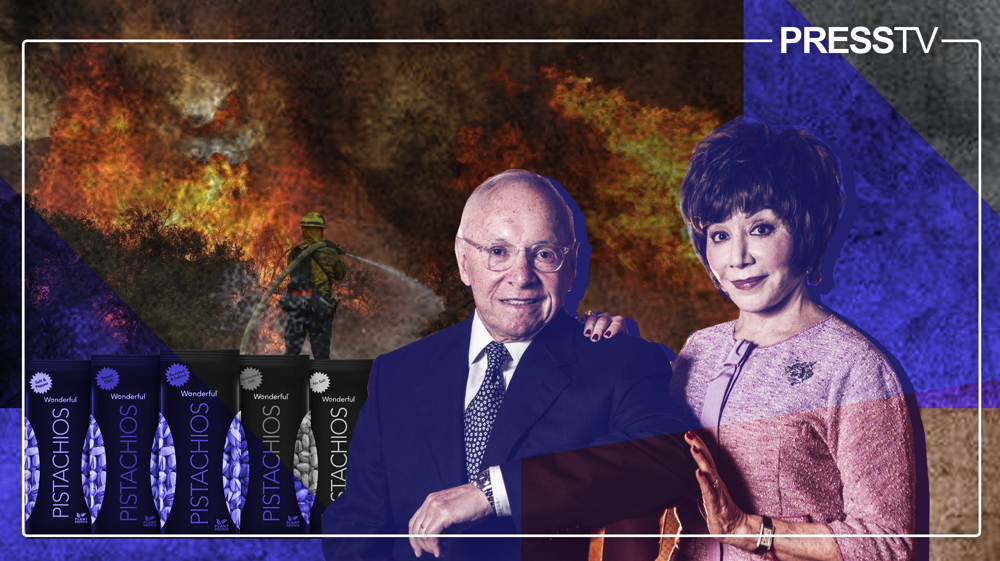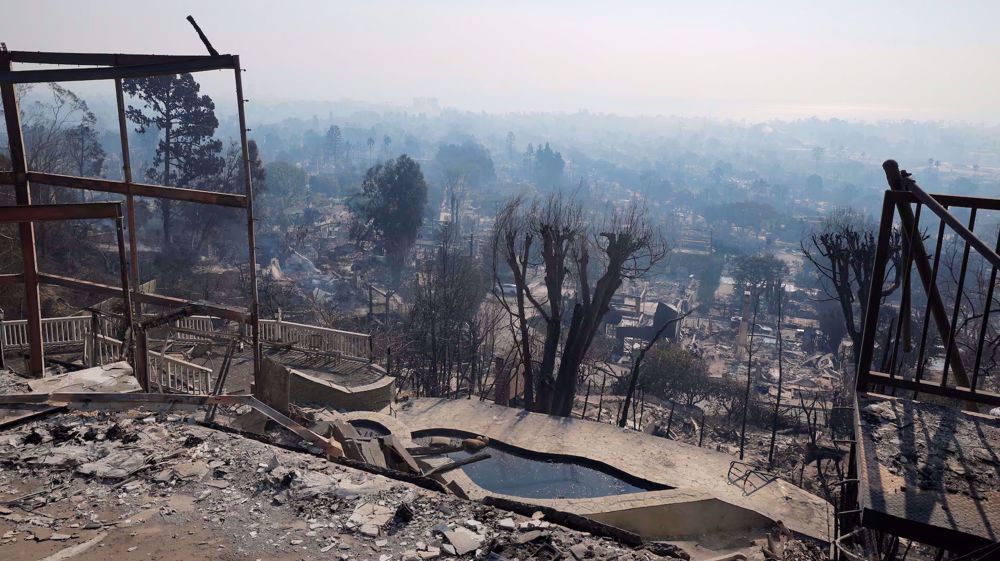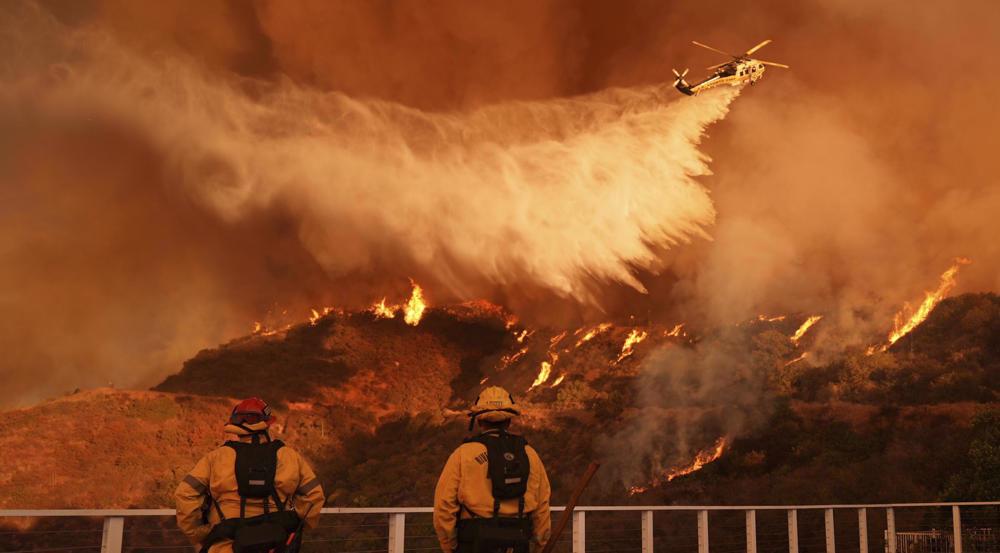First US delivery of COVID-19 vaccine will leave out high-risk workers
The US government’s first shipment of millions of coronavirus vaccine doses to be divided among states and federal agencies, including the Department of Defense, will fall far short of protecting high priority groups such as healthcare workers, a Reuters analysis has found.
Across the country, state health departments are preparing local hospitals for the first shipments of Pfizer Inc’s COVID-19 vaccine if the US Food and Drug Administration authorizes it, possibly as early as mid-December.
The first shipment is expected to cover inoculations of 3.2 million people, nowhere near enough for the 21 million US healthcare workers. And government officials said initial shipments would also go to five government agencies including the Departments of Defense, State and the Veterans Health Administration.
The subsequent two weekly vaccine distributions could cover 7 to 10 million people a week, provided a second vaccine - from Moderna Inc - is authorized early in the second half of December, and Pfizer meets its distribution estimates, according to data provided by Department of Health and Human Services (HHS) and the companies. Federal officials have not disclosed exactly how many doses will be in later shipments.
“For the time being, and the foreseeable future, the demand for vaccines is going to exceed the supply by a lot, even for the highest priority groups that are identified,” said Josh Michaud, Kaiser’s associate director of global health policy.
States have the final word on how to distribute vaccines to their citizens, but federal officials have said that of some 330 million US residents, healthcare workers and those in nursing homes should be considered first for vaccines. Many states told Reuters that was their plan.
The US Centers for Disease Control and Prevention (CDC) did not respond to a request to comment. The Pentagon declined comment. HHS cited public comments from a Tuesday press call, in which officials said the first dose allocation will be the start of a steady stream of vaccine deliveries.
Some better protected than others
With early supplies limited, the federal government is allocating doses based on state populations, rather than the proportion of the populations at high risk. That means some states’ health workers will be better protected than others.
Alabama for instance, will receive enough vaccine for around 17% of its healthcare workers, while Illinois could cover only 13%, according to data from state officials.
The approach would initially leave out around 190,000 healthcare workers in Alabama and more than 570,000 in Illinois, according to Kaiser Family Foundation data on healthcare workers by state. More than 2 million healthcare workers in California will have to wait as early vaccine supplies are doled out, based on figures provided to Reuters by state officials.
This first stage of the rollout illustrates the complexity of the government’s goal to vaccinate most Americans by mid-2021 to stall a pandemic that has so far claimed more than 273,000 US lives, with hundreds of thousands more deaths projected in the next few months.
US officials maintain they will distribute 40 million doses by the end of the year - enough to inoculate 20 million people - with millions of shots shipping every week, assuming speedy approvals of both the Pfizer and Moderna vaccines.
Pfizer, which developed its vaccine with German partner BioNTech SE, told Reuters the United States will receive about half of the 50 million doses it will produce in 2020. Moderna’s vaccine could add at least another 12.5 million doses, federal officials have said.
The CDC expects about 5 million to 10 million doses to be shipped per week in the first weeks of the US vaccine distribution effort.
States plan for shortfall
States meanwhile are preparing for the first distribution to fall short, as hospitals across the country grapple with record numbers of COVID-19 patients and staffing shortages.
“Clinical staff are becoming infected, nurses and doctors. It’s creating a workforce crunch and the beds are filling up,” said Alan Morgan, chief executive of the National Rural Health Association, an advocacy group for rural hospitals.
Arkansas’s state epidemiologist Jennifer Dillaha said vaccines are urgently needed to keep up with the surge in patients. “We want to ensure our hospital capacity as much as possible through vaccination for those healthcare workers who are at highest risk for infection,” she said.
More than half a dozen states including Alabama, California, New Mexico, and Wisconsin, told Reuters the first allocation estimates they have been given would not be near enough to cover all their healthcare workers, let alone other high-priority residents.
The size of initial allocation figures shared with Reuters ranges widely, from around 330,000 in California - the most populous US state - to less than 7,000 in North Dakota, which has 50,000 healthcare workers, according to Kaiser data and figures provided to Reuters by state officials.
That means both states can vaccinate less than 20% of their healthcare workforce with the first shots. New York state will receive 170,000 shots initially, enough for roughly 13% of its healthcare workers.
The US government expects the number of available doses to increase in January to about 60 million to 70 million.
It has made deals for 100 million doses of Pfizer’s vaccine for $1.95 billion and 100 million of Moderna’s for $1.5 billion, with options to buy more. It expects vaccines to be free to most Americans.
(Source: Reuters)
'Gaza has won': Social media users react to ceasefire with mix of relief, joy
Iran seeks South Korea’s assistance for AI, fiber-optic projects
VIDEO | Iran's 'Eqtedar' (Power) maneuver
Israel hits HTS military target in Syria for 1st time since fall of Assad
VIDEO | Press TV's news headlines
Israel has slaughtered 13,000 students in Gaza, West Bank
VIDEO | More Zionist than Zionists: Biden’s legacy to be defined by Gaza genocide
Hamas confirms handing approval of Gaza ceasefire deal to mediators










 This makes it easy to access the Press TV website
This makes it easy to access the Press TV website